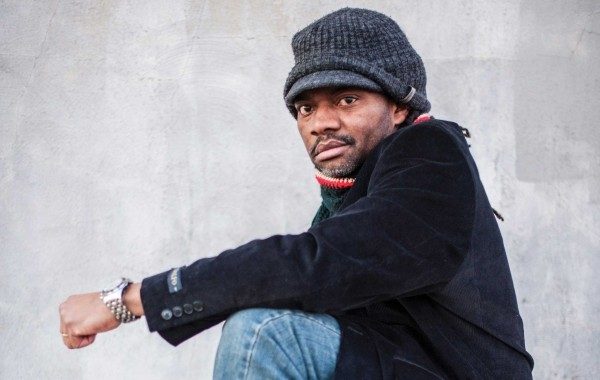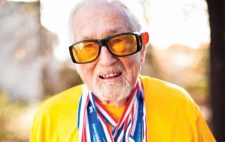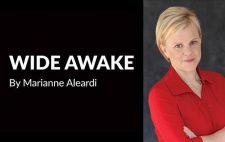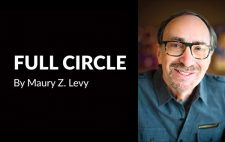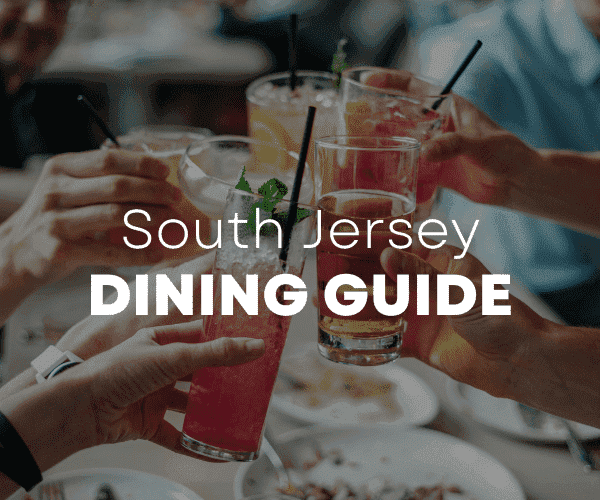Troubled youth in Camden have a surprising advocate: performance poet Dave Benjamin. In a world of poverty, crime and addiction, Benjamin introduces the art of the spoken word to mentor at-risk youth. The Jamaican transplant founded Rise Up Arts, a nonprofit that gives kids a creative outlet through music and poetry.
What do you hope young people will learn from the arts?
Hopefully, the power is in the poetry. They can use poetry as a vehicle, not only to empower themselves but others in overcoming so many obstacles they may encounter. We’re talking about at-risk youth; you’d be surprised what some of these adolescents go through before they even get to school. Poetry and music are vehicles to help them help themselves and in that process overcome some of these obstacles.
Can you share a time when you believe you made an impact?
In 2008, I was working with a student, Rakin, who was one of the most challenging young people I’ve come across. One of his parents was deceased at an early age, and one was very abusive. Rakin was beaten until he was a teenager. Every box you could check off for a student who would never make it – this was him. He was an excellent reader, and I knew that he could ultimately write. I told him he had a poem inside of him, but he said he hated poetry and could never write like that. I gave him a blank journal and asked him to put his thoughts and feelings and emotions into it.
I also had him fill out job applications, but he got a series of rejections. It wasn’t that he didn’t have the aptitude, but it was his disposition. He got an interview at a Pathmark – we taught him how to go through the interview process, write a resume and dress for an interview. A week later he was very disappointed because he got a call that said, ‘You showed great promise, but unfortunately we weren’t able to give you the position.’ Right there he hung up the phone – they were going to add that they would likely have a position in the spring. He went back with some friends and started a fire in an area where a warehouse was working on an expansion. I told him he had to make amends and that as bad as it was, something good had to come from this. He went back and apologized. He was in tears. He agreed to come back each weekend with some friends to repair the damage they had caused. The manager said that because Rakin was trying to do something with his life, he wouldn’t press charges and he gave him a position there. Rakin ended up getting a scholarship to college. He studied electrical engineering and now has his own electrical company.
Why do you think poetry resonates with young people?
It resonates so well, because it’s like an unwritten diary of their lives. They’ve experienced it but haven’t put it to paper. It’s very powerful when they put it to paper, but even more powerful when they perform it. It takes it to a whole different level of how they present their work. How does it sound, how does it flow, how does it rhyme, how do you incorporate the emotions behind the poem and engage the audience? That’s very empowering to them.
What happens at your youth rallies?
We did a Camden Youth for Truth Spoken Word competition last year at Rutgers. We involved all the schools in the district and some out of the district. Students come together and share their thoughts on what’s happening socially and what’s happening with them in their own lives. What are some of the challenges they face, how do they feel about them, and how are they able to overcome them? It’s empowering to listen to their stories, but also to hear the different strategies of how they’re able to overcome some of these obstacles and challenges.
Do you think Camden is changing?
I would say so based on what’s happening with the educational institutions in the city. Rowan, my alma mater, and Rutgers are supporting the secondary educational institutions in the city. Years ago, if you went to Camden High or Wilson, you were disconnected from the whole college experience. But now it’s more inclusive. Now these kids can have access to these institutions and make their mark.
When did you fall in love with poetry?
My Grandmom has always been a great orator. She can stand there and recite a whole Shakespeare play. She grew up very poor in Jamaica, but they had lots of land they farmed. This was the age of no Internet or television, so the way they entertained themselves was through stories, songs, dance and poetry. They’d gather around in a circle and tell stories and recite original poems, and that passed on to me. My Grandmom was a midwife who would go around the countryside delivering babies. To hear those experiences was a great inspiration. My dad was a musician who played with the likes of Bob Marley. When you grow up in Jamaica, you’re around those creative elements and it has to affect you in a positive way. It was just amazing.
You have worked with some very well-known artists. Can you share a story about one?
I worked with Russell Simmons, who is one of the pioneers of the whole hip-hop movement. He was responsible for the record label Def Jam. We collaborated on a national spoken word competition that was held at Sovereign Bank Arena in Trenton. The idea was to involve various schools across the state and bring them to a central location to compete in a huge poetry contest. Ultimately the winners would get scholarships. For kids from Camden it was huge. We talked about what we are able to offer our countries and communities with our God-given talents and gifts. Once you let yourself know what you’re capable of, the world is your oyster.
Who has influenced you?
Definitely my Grandmom, and the writer in me who has been influenced by all my students and the youth that I’ve worked with over the years. I’m also a huge Marley fan, having gotten the chance to meet him. I would go with my dad to the studio and all these musicians would be there. He was just a normal person.
You travel a lot for your work. Can you share a time and place where you were especially impacted?
Sometimes you may go far away but … just across the bridge we did a program at a school where the whole idea was to get the kids involved in the literary process. This school was bad – kids were starting fires in classrooms and teachers were getting punched in the face. I asked them to share their life experiences, and they were very shy. They said they felt as if nobody cared. That’s really powerful. I asked them to do some introspection. Do you guys really care about yourselves? It was a big process for them to think about that because these kids have always been on the short side of the stick and never realized that people do care, but you have to care about yourself also. The kids ended up revealing so much that they wouldn’t normally do in any other setting.
What lessons do you hope to teach young people?
Identify the issues that affect you, and also identify your gifts and talents. Then use those talents – that’s the end game. Make a list of your goals. Know who your life coaches are – your parents, guidance counselors, teachers and your friends. Those are the people who can help you.

